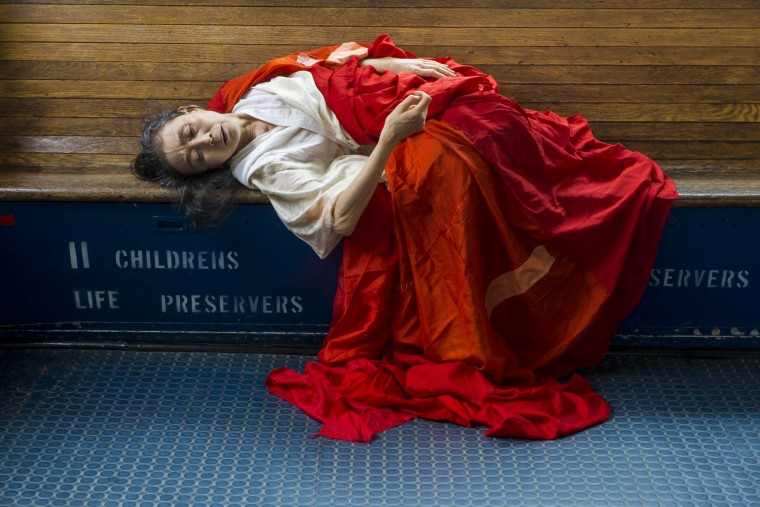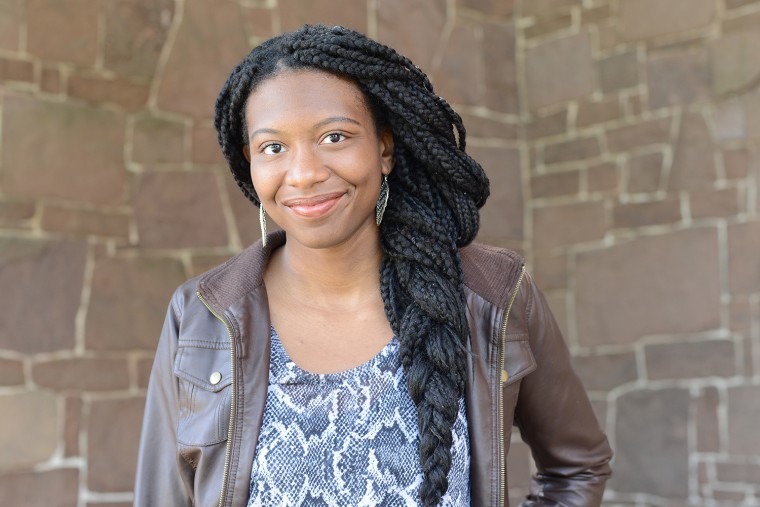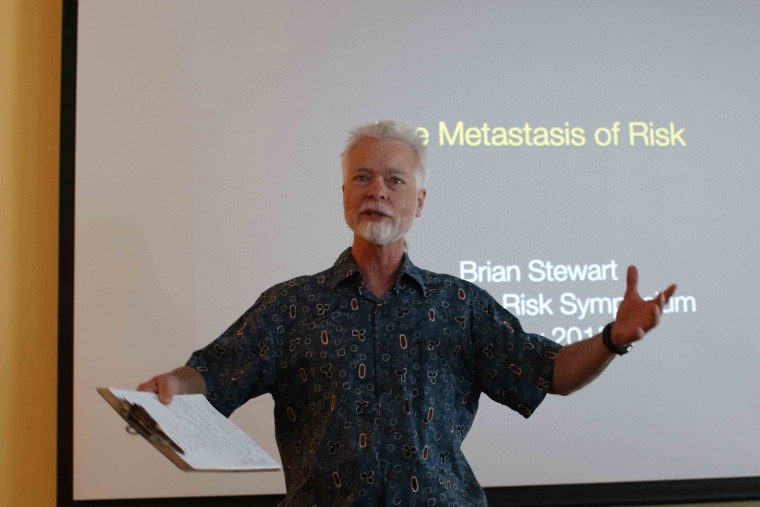Laura Grabel, the Lauren B. Dachs Professor of Science and Society, professor of biology, warns in a new op-ed that the progress of embryonic stem cell research in this country, always subject to the ups and down of politics, is currently under threat. Co-authored with Diane Krause of Yale University, the op-ed in The Hartford Courant notes that Tom Price, President Donald Trump's nominee to head the Department of Health and Human Services, is on record opposing embryonic stem cell research. They write: As stem cell researchers, we fear that this appointment would endanger human embryonic stem cell research in the United States…
Victoria Pitts-Taylor, chair and professor of feminist, gender and sexuality studies, is the editor of Mattering: Feminism, Science and Materialism published by NYU Press in August 2016. Anthony Hatch, assistant professor of science in society, co-authored a chapter in the collection titled "Prisons Matter: Psychotropics and the Trope of Silence in Technocorrections." Mattering presents contemporary feminist perspectives on the materialist or ‘naturalizing’ turn in feminist theory, and also represents the newest wave of feminist engagement with science. The volume addresses the relationship between human corporeality and subjectivity, questions and redefines the boundaries of human/non-human and nature/culture, elaborates on the entanglements of…
In the wake of the unparalleled homophobic violence committed in Orlando this month, and the Islamophobic and anti-Muslim sentiments expressed only hours later (notably, by presidential candidate Donald Trump), Professor of Religion Peter Gottschalk writes an op-ed for Inside Sources about the deep roots of all three in America. He opens on a personal note: "As a boy in the late 1960s and 1970s, I knew there were few more destructive suspicions that could be voiced about me than those connoted by the label 'gay.' While the term might be flung at someone by friends as a joke, it could be a…
Writing in The Washington Post, Lori Gruen, the William Griffin Professor of Philosophy, argues that fingers are being pointed in the wrong direction after Harambe, an endangered lowland gorilla, was shot and killed at the Cincinnati Zoo after a 4-year-old child entered his enclosure. "The real culprits are zoos," she writes. Many in the animal protection community contend that the gorilla didn't pose a real threat to the boy, and are questioning if zoo staff did enough to try to separate Harambe from the child. Others are blaming the boy's mother for not properly supervising him. Gruen writes: For me, the real question is…
Building off research she did for her work "Body in Places" at Wesleyan in fall 2015, Visiting Instructor in Dance Eiko Otake will present a major platform at Danspace Project in New York City on March 11. The free talks include those by Wesleyan faculty members William Johnson, professor of history, professor of East Asian Studies, professor of science in society, professor of environmental studies, and Katja Kolcio, associate professor of dance, associate professor of environmental studies. March 11 marks the fifth anniversary of the earthquake, tsunami and nuclear disaster in Fukushima, Japan. A photo collective by Eiko and Johnston will be…
Associate Professor of History Jennifer Tucker is the co-author of an op-ed in the Boston Globe titled, "What the Clean Air Act can teach us about reducing gun violence." Tucker and co-author Matthew Miller of Northeastern University write, "The recent scandal over Volkswagen’s polluting engines vividly illustrates the contrast between the way Americans, and in particular elected officials, treat guns and the way we (and our elected officials) treat cars — both of which kill approximately 32,000 Americans every year." The Clean Air Act, passed in 1970, has averted tens of thousands of premature deaths though "a systematic and scientific approach to…
At a time when gun deaths are spiking and Congress has failed to enact significant legislation to tackle the problem, Associate Professor of History Jennifer Tucker writes an op-ed looking at how we got here. She contends that it is Hollywood’s version of history—not reality—that is behind the belief that guns have been a critical part of American culture over centuries. She writes: The 1953 movie “Shane” exemplifies the narrative of a “good man with a gun.” Responding to a woman’s wish that guns be banished, Shane replies: “A gun is just a tool, Marian. It’s as good or bad as…
Seventy years later, it is widely believed that President Harry S. Truman made a decision to authorize the bombings of Hiroshima and Nagasaki. The truth, writes William Johnston in the Hartford Courant, is that he never did, at least not explicitly. Johnston, professor of history, professor of East Asian Studies, examines in an op-ed how history has been rewritten surrounding the bombings. In fact, Truman's first explicit decision about atomic bombs was to later order that their further use be stopped without his "express authority." But in summer 1946, Johnston explains, the need arose to write an alternative narrative, as the bomb's…
Science in Society major Stacy Uchendu '17 is participating in Wesleyan's Ronald E. McNair Post Program, which assists students from under-represented groups in preparing for, entering and progressing successfully through post graduate education. Stacy is researching second generation biofuels as a McNair Scholar.
Two Wesleyan faculty members presented talks at the 14th International Conference on the History of Science in East Asia, held in Paris, July 6-10. On July 7, Miri Nakamura, associate professor of East Asian studies, read from a paper titled "Atomic Maids," which focused on the role of Japanese housekeepers in mystery novels that were indirect criticisms of nuclear issues. On July 9, Bill Johnston, professor of history, professor of East Asian studies, professor of Science in Society, professor of environmental studies, spoke about the changing role of the environment in ideas about disease causation in 19th century Japan. The conference is held every four…
On May 2, the Wesleyan Symposium on Risk brought together faculty and students for an interdisciplinary discussion of risk. The event was sponsored by American Studies, the Center for the Humanities, the College of Letters, Feminist, Gender and Sexuality Studies, the Patricelli Center for Social Entrepreneurship, the Neuroscience and Behavior Program, the Science in Society Program, and the Huffington Foundation Professor of Economics and Environmental Studies support funds. (Photos by Hannah Norman '16) (more…)
This issue, we ask “5 Questions” of William Johnston, professor of history, professor of science in society, professor of East Asian Studies. One of his areas of specialty is the history of disease and epidemics. Q: How did you become interested in the history of diseases, and more specifically, flu outbreaks? A: While in graduate school I examined a number of different fields of history, but was drawn to the history of medicine in Japan because it was in that field that the Japanese first absorbed European scientific ideas and methods. My advisor suggested that I take courses in the…





